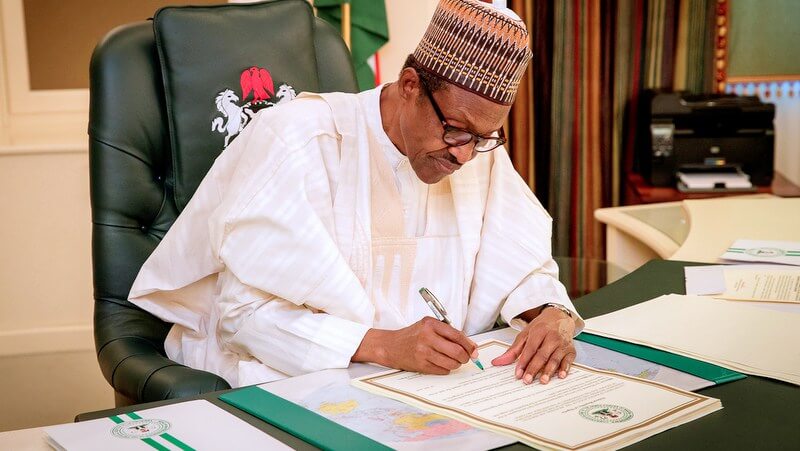3 Political Parties Ask Court To Bar Buhari From Signing Electoral Amendment Bill
Three political parties, on Monday, approached the Federal High Court, Abuja seeking an order of the court to stop President Muhammadu Buhari from assenting to the Electoral Amendment Bill 2018.
The three political parties are: Advanced Peoples Democratic Alliance, (APDA), Allied Peoples Movement, (APM) and Movement for Restoration and Defence of Democracy, (MRDD).
Advertisement
They also want a declaration of the court that assenting the bill would truncate the 2019 general election.
Counsel to the plaintiff, Dapo Otitoju, who filed the process on behalf of his clients told reporters that they had two questions for the court to determine.
“Whether the president can proceed to assent the Electoral Act amendment bill 2018, forwarded to him by the National Assembly to be used to conduct the 2019 general election when there is no adequate time for the manifestion of the proposed act.
“Whether assenting to the Electoral Amendment Bill 2018, now will not truncate the Chairman, Independent National Electoral Commission, (INEC) from ensuring proper conduct of the 2019 general election.”
Advertisement
This, according to the plaintiffs, is considering the fact that the notice of election was initiated in line with the Electoral Act 2010 as amended.
In an affidavit in support of the originating summons, Shitu Kabir, presidential candidate of APDA, deposed that the existing act had been used by political parties to conduct primaries into political elective offices for 2019.
Mr Kabir further deposed that amending the act that had been used for primary elections in preparation for the 2019 general elections would engender confusion in the electoral process.
According to him, assenting the bill will truncate the electoral process which has already began.
“I know as a fact that the bill will provide for electronic transmission of results from polling unit to collation centres.
Advertisement
“I know that there is no way the electorate who are not educated in this area can assimilate the act of electoral voting and transmission in less than two months to the general elections.
“As a candidate, I know as a fact that the level of education of the generality of the electorate is very low and they will be confused and this may lead to them being disenfranchised.
“That proper voters education and demonstration of electronic voting system is required to be done in all 36 states of the federation, the FCT and the 774 local government areas before such a bill can be introduced to the electoral process.”
The plaintiffs, however, said that they were not against the bill or the president giving his assent.
They maintained that they were only asking that assent to the bill should be withheld until after the 2019 elections to avoid manipulation of the process.
The suit which also has the Senate President, the Speaker, House of Representatives, the INEC Chairman and the Attorney-General of the Federation as defendants has however, not been assigned to a judge.
Advertisement
_
NAN



